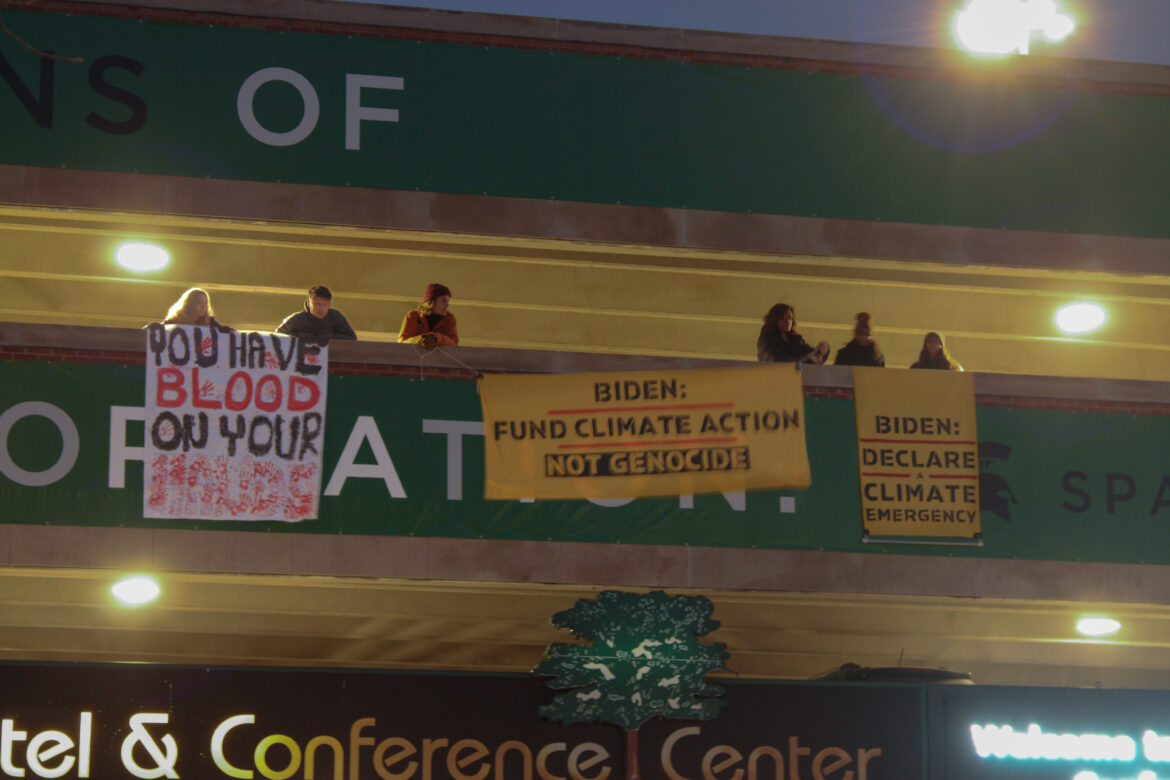Campus News
Protests disrupt Pete Buttigieg speaking event at Michigan State
|
On Nov. 29, several protests took place outside of Michigan State University’s Kellogg Center as U.S. Secretary of Transportation Pete Buttigieg held a speaking event inside the venue. The event was one of many along the secretary’s recent speaking tour that has been met with protests.
Three distinct groups protested the event: the Sunrise Movement, Michigan State’s Hurriya Coalition, and Climate Defiance. The Sunrise Movement, which is a national grassroots movement advocating for climate justice, hung banners out of the Kellogg Center’s main parking garage, where most event attendees were entering. The three banners read in all capital letters: You have blood on your hands; Biden: Fund climate action not genocide; and Biden: Declare a climate emergency


